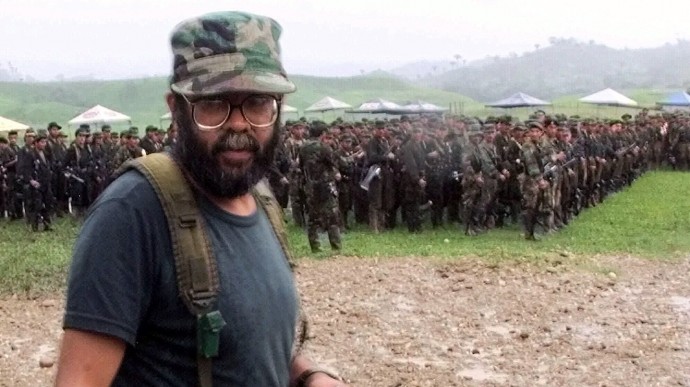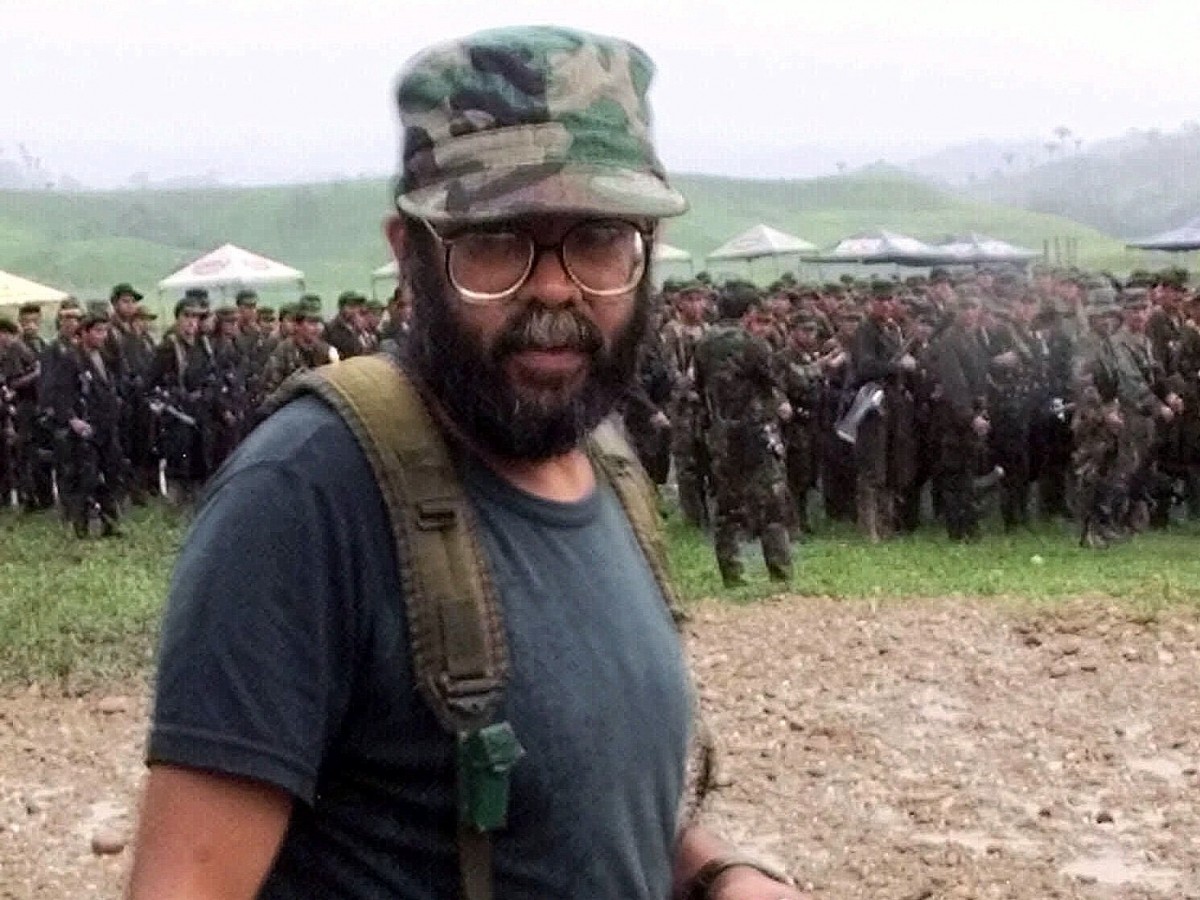
BOGOTA, Colombia — Ongoing peace talks in Cuba between the Colombian government and FARC guerrillas have included foreign rebels-turned-politicians from Northern Ireland, El Salvador, Nicaragua and South Africa.
Their message to Colombia’s largest guerrilla group has boiled down to this: “If we can do it, so can you.”
Yet even though one of the key goals of the Havana peace negotiations is for the FARC to end its 50-year war, disarm and form a political party, the guerrillas are wary. In the 1980s, the FARC founded a left-wing party only to see thousands of its members gunned down.
Talks to end Latin America‘s longest-running armed conflict began in Havana last year and President Juan Manuel Santos, a close ally of the United States, hopes to sign the final paperwork by next year, when he’s up for re-election.
In June, the two sides began discussing the second of six points on the negotiating agenda: the FARC’s transition to legal politics.
Government envoys claim times have changed, security has improved and Colombia is now safe for onetime guerrillas to stump for votes.
“The FARC, if they make a transition to a legal political movement as we hope, require special guarantees just as has occurred in all processes of dialogue around the world,” Humberto de la Calle, the government’s chief negotiator, said last month.
Since launching its war against the government in the 1960s, the FARC — which stands for Revolutionary Armed Forces of Colombia — has claimed that it’s too dangerous for leftists to run for office and that armed struggle is the only path to political power. The rebels speak from experience.
During a cease-fire in 1984, the FARC formed the Patriotic Union party. If the party gained legs and turned into a viable political force, the thinking went, there would no longer be grounds for an armed uprising and the guerrilla group would disband. Bogota officials, in turn, promised to protect its members from reprisals.
But unlike smaller Colombian rebel groups that first disarmed before jumping into politics, the FARC refused to put down its weapons. Indeed, some rebel leaders saw the Patriotic Union as an ideal vehicle to spread their message to the cities and recruit more fighters. Thus, when the party’s candidates began winning elections, right-wing extremists charged that the Patriotic Union was paving the way for a rebel takeover. The result was a bloodbath that the Colombian government did little to stop.
All told, 3,000 Patriotic Union members, including two presidential candidates as well as dozens of city council members, mayors and congressman, were killed — often by death squads working in cahoots with the Colombian army. Human rights activists called it “political genocide.”
“What was left of this political party was this sort of lost hope, this sense that an opportunity had been blown in the 1980s for Colombia to come to some sort of peace agreement,” said Steven Dudley, author of Walking Ghosts, a book about the Patriotic Union.
Ivan Marquez, the FARC’s chief negotiator in Havana, is a former Patriotic Union congressman. As party members were targeted in the mid-1980s, he resigned his seat and rejoined the FARC. From Havana, he recently vowed that the FARC “will not go through the same hell” again.
Still, Colombia’s political and military landscape has transformed dramatically in recent years. The FARC’s ranks have been cut by half to about 7,000 troops amid a longrunning army offensive. The paramilitary groups that targeted the FARC and the Patriotic Union in the 1980s and 90s have largely disarmed.
What’s more, former fighters from other guerrilla groups that signed peace treaties now serve as legislators and mayors, including Gustavo Petro, a former M-19 guerrilla fighter who is now mayor of Bogota.
That’s not to say leftist politicians have an easy time of it.
“You have to have thick skin, like a rhinoceros,” said Colombian congressman Ivan Cepeda, who is the son of Manuel Cepeda, a Patriotic Union senator who was assassinated. “I receive death threats every week or two. I live surrounded by bodyguards.”
But these days, such threats are far less likely to be carried out. What’s more, the Colombian government is trying to make amends for its role in the destruction of the Patriotic Union. At a ceremony in the Colombian congress, the government formally apologized for the death of Cepeda, who was killed in 1994 by state security agents. In July, a Colombian court restored legal status to the Patriotic Union.
The party’s leader, Omer Calderon, said the new Patriotic Union aims to become part of a broad alliance of left-wing parties. That alliance, he said, could include members of the FARC if the guerrillas sign a peace accord.
A final deal may not come before congressional and presidential elections next year, but it could open the door for ex-FARC members to run in local and regional elections in 2015.
If so, they would likely find it tough to attract voters in many parts of the country, according to Alvaro Balcazar, an adviser to the Agriculture Ministry who has worked in many rebel-dominated areas.
Elsewhere in Latin America, guerrilla movements developed deeper political ties that paved the way for their transition to elected office. Former rebels now serve as president in Nicaragua, Uruguay and Brazil, while El Salvador’s FMLN, which was once a guerrilla army, is now the ruling party.
But the FARC, which funds its war through drug trafficking, extortion, and other criminal endeavors, often put political organizing on the backburner to focus on military operations that sometimes included kidnappings and massacres.
Rebel commanders held responsible for such atrocities are likely to be legally banned from running for office. In addition, FARC involvement in assassinations, extortion schemes and abductions has turned much of the Colombian population against the rebels.
However, Balcazar speculated that former rebels may win some mayoral and town council elections in former strongholds, such as Caqueta, Cauca, and Arauca departments.
Dudley, the author, said he believes it’s time for the FARC to give peaceful politics a second chance.
“Initially anyone who runs a campaign and who is an ex-guerrilla, especially an ex-FARC member, is going to have to have incredible amounts of protection,” Dudley said.
“However, over time these wounds will heal. And people’s perceptions of these guys will change. And I think the same would happen with FARC members.”
This article originally appeared on GlobalPost.


